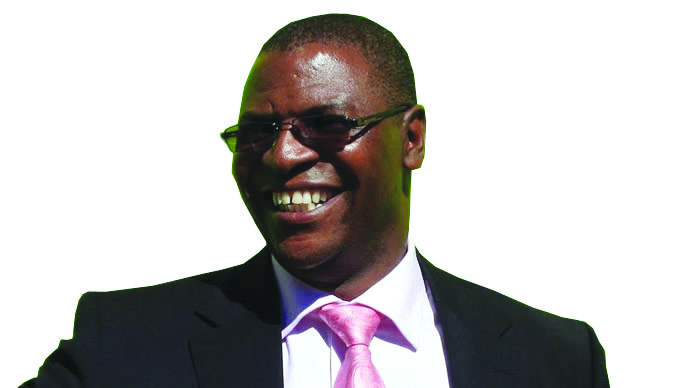


 THE European Union (EU) is reportedly split over continued sanctions on crisis-torn Zimbabwe, which recently emerged from a disputed but peaceful election in which President Robert Mugabe won by a landslide majority.
THE European Union (EU) is reportedly split over continued sanctions on crisis-torn Zimbabwe, which recently emerged from a disputed but peaceful election in which President Robert Mugabe won by a landslide majority.
This emerged as the Head of the European Union Delegation to Zimbabwe, Ambassador Aldo Dell’Ariccia, said the EU was “currently reviewing its relations with Zimbabwe taking account of the broader point of view on the elections as well as the approach of the new government”.
Diplomatic sources indicated this week that the push by Belgium for the EU to lift sanctions on a Zimbabwean mining firm highlighted a shift in direction towards the block’s sanctions regime on Zimbabwe, which has been largely targeted at President Mugabe and members of his so-called inner circle.
Reports this week suggested the EU had succumbed to pressure from Belgium and agreed to lift sanctions on State-run Zimbabwe Mining Development Corporation (ZMDC), which owns the majority of diamond mining operations in Marange.
ZMDC operates five joint-venture mines in the rich Marange diamond fields, producing eight million carats last year and generating US$685 million in exports.
Human rights activists allege that cash generated from the sale of the Marange diamonds has been used to fund ZANU-PF and violence against opposition party supporters, accusations ZANU-PF denies.
One diplomatic source said that besides Belgium, German, Spain, Italy, Greece and Portugal were the other key members who felt sanctions on the country should be removed and re-engagement resuscitated.
Denmark has also softened its position on Zimbabwe. Signalling that the country would resume aid to Zimbabwe after the constitutional referendum in February, Denmark’s Foreign Minister Villy Søvndal said: “With a history plagued by political unrest, it is extremely positive that Zimbabwe looks to take a giant step in the direction of more democracy and greater respect for human rights.”
“Even though the country won’t transform into a blossoming democracy overnight, the Constitution will prevent a repeat of 33 years with the same president.”
The Danish Embassy’s Chargé d´Affaires in Zimbabwe, Erik Brøgger Rasmussen, said support by his country would now escalate after the elections.
“We’ll scale up the support. We have a new agreement (due for) signing. We are finalising it,” he told The Financial Gazette in a telephone interview.
He said support had been mainly targeted at the justice system but noted that funding would now not be channelled directly to government.
“We’ll find another way of supporting (the justice system,” he said, indicating that he had meetings with the Judicial Services Commission on Tuesday last week.
Said the diplomatic source based in Harare: “There is a general shift in thinking. There is a gradual acceptance that the environment is now peaceful and more can now be achieved through engagement rather than isolation.”
He indicated, however, that there were other members who felt strongly that the EU needed to tighten screws on President Mugabe, who announced his new Cabinet last week, over a month since the elections were held on July 31.
He noted that sanctions had mainly been maintained because of the prevalence of violence in the country.
“That largely no longer subsists, and we want to encourage and promote peace,” he said.
Dell’ Ariccia said: “The EU is currently reviewing its relations with Zimbabwe taking account of the broader point of view on the elections as well as the approach of the new government. We have always said that our objective is to normalise relations. We had hoped to be able to do so on the basis of peaceful, transparent and credible elections. The elections were peaceful, but the weaknesses in the process reported by observers mean that they were not wholly transparent and that impacted on their credibility.”
Asked about reports suggesting disagreements on continued imposition of sanctions on Zimbabwe, he said: “The EU is undertaking the promised review of relations, including the restrictive measures, in the light of all the facts. The EU will reach its conclusions by consensus.”
The term ‘restrictive measures’ is a euphemism for the sanctions.
Asked if the EU would seek engagement or isolation, Dell’ Ariccia said: “EU’s goal is to support the Zimbabwean people in achieving a more prosperous and democratic Zimbabwe, as a foundation for the future full normalisation of relations between Zimbabwe and the EU. The EU will work to help build the prosperity and welfare of Zimbabwean people. We now wait to see what policies the government will propose, but insofar as our objectives are compatible, we will be happy to work together.”
On its website, the EU said in a statement: “The decision on the suspension of the appropriate measures on 23 July, 2012 is a significant step in the process towards normalised relations between the EU and Zimbabwe. It represents a major shift in the EU approach.”
That shift, however, had been largely precipitated by creation of an inclusive government between President Mugabe’s ZANU-PF and the two MDC formations led by former Prime Minister Morgan Tsvangirai and constitutional law professor Welshman Ncube, who was Industry Minister in the inclusive government.
The inclusive government ended with the inauguration of President Mugabe after the July elections.
The statement said the EU was “looking forward to further deepening relations with Zimbabwe, evolving in the longer term towards a partnership with potentially increasing emphasis on trade and investment. The EU is already the second largest trading partner to Zimbabwe and trade has doubled since 2009, with a large trade surplus for Zimbabwe.”
Representatives for most EU member countries were either in meetings or not available when contacted for comment. Some were still to present their credentials to the new government.
Apparently, there has been concern among EU investors that the standoff with Zimbabwe, which has taken too long for their countries to settle, has resulted in the Chinese negotiating lucrative deals with Zimbabwe, elbowing them out in a rush for mineral resources.
It would appear the major concern by the EU would be to ensure that Zimbabwe builds on the momentum for reforms created by the inclusive government.
Although Britain, a key member of the EU has refused to recognise President Mugabe and his ZANU-PF party’s landslide victory at the July 31 polls, the EU fell short of hailing the elections, praising Zimbabweans for turning out in large numbers to vote peacefully.
It said in its statement soon after the elections that it would await the assessment of the Southern African Development Community (SADC) and the African Union (AU) on the elections and reported irregularities.
SADC has since issued its final report which described the elections as “free, fair and generally credible”.
But the report has been condemned by Tsvangirai and his party, which insists the elections were a farce. Reports indicated that Tsvangirai would be fighting to ensure a re-run, but he was nonetheless negotiating an exit package from government, which includes a mansion and two top of the range vehicles. This appeared to suggest that he was sure about the impossibility of overturning the electoral outcome.
The AU released a preliminary report expressing concerns over non-availability of the voters’ roll and the high incidence of voters turned away at polling stations.
But former Nigerian president, Olusegun Obasanjo, who headed the AU mission, said the elections had been free and there was no evidence of systematic tampering.
“Fair? Fairly! I have never seen an election that is perfect,” he responded to questions from journalists.
The EU imposed so-called targeted sanctions on Zimbabwe in 2002 after alleged human rights violations and electoral violence by President Mugabe’s government.
The EU sanctions largely entail an asset freeze and travel ban for listed individuals.
In February, EU foreign ministers eased sanctions to reward Zimbabwe for political reforms and agreed to lift sanctions on ZMDC, within a month of the elections provided they were judged peaceful and credible.
A month later, the EU suspended most remaining sanctions on Zimbabwe after voters approved a new constitution.
Last week, Belgium, home to the world’s leading diamond trading hub at Antwerp, called for the removal of sanctions on the ZMDC.
Belgium argued that the EU had not refused to recognise the Zimbabwe elections and so the February agreement must be respected and sanctions on ZMDC lifted.
“For us, there is an agreement,” Belgian Foreign Ministry spokesman Hendrik van de Velde said.